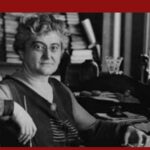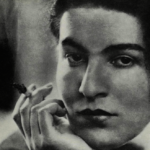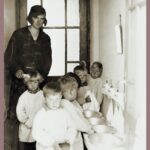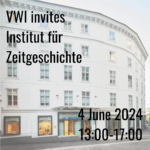 Hungarian Historical Review (Web), Dóra Fedeles-Czeferner
Hungarian Historical Review (Web), Dóra Fedeles-Czeferner
Proposals by: 30.06.2024
This special issue explores women’s activism in Central and East Central Europe (including the Austro-Hungarian Monarchy and its successor states) between 1848 and 1990. It investigates the history of the diverse array of women’s associations in these regions and considers the ways in which these associations established networks and cooperated in their efforts to further women’s rights. It also examines the endeavors of the individual leaders of these movements over longer periods of time and often across international borders or under radically shifting political regimes. Topics of interest include (but are not limited to):
- To what extent could the 1840s be interpreted as the genesis of women’s activism in the different regions? How did the first groups of women fulfill their traditional roles as wives and mothers while also becoming active as organizers and raising their voices for the emancipation of women? How did they connect with one another?
- How did the women of the next generations make efforts to change the existing social relations? Who were these women who embraced progressive and sometimes radical ideas? How were they involved in the women’s movements?
- What types of networks were formed among women’s organizations in the different regions over the course of a period of decades which bore witness to several political, economic, social, and cultural transformations?
- How did international women’s organizations, such as the International Council of Women (Washington D.C. 1888–), the International Woman Suffrage Alliance (Berlin, 1904–, since 1926 the International Alliance of Women), and the Women’s International League for Peace and Freedom (The Hague, 1915–) influence this process? What kinds of structural inequalities can be observed among the national and international associations?
- How did activism alter women’s citizenship status? Why was it important in this process that certain activists could afford to travel regularly? How did women who could not travel pursue other forms of activism? Continue reading

 College for Social Sciences and Humanities (UA Ruhr) and Cultural Anthropology of Textiles, TU Dortmund Univ.
College for Social Sciences and Humanities (UA Ruhr) and Cultural Anthropology of Textiles, TU Dortmund Univ.  Archiv der deutschen Frauenbewegung (AddF)
Archiv der deutschen Frauenbewegung (AddF)  Karl Franzens Univ. Graz; Ana Kladnik (Soziologie/Gender Studies), Heidrun Zettelbauer (Kultur- und Geschlechtergeschichte), and Katharina Scharf (Cluster Gender/HuK)
Karl Franzens Univ. Graz; Ana Kladnik (Soziologie/Gender Studies), Heidrun Zettelbauer (Kultur- und Geschlechtergeschichte), and Katharina Scharf (Cluster Gender/HuK)  Vienna Wiesenthal Institute: „VWI invites Institut für Zeitgeschichte der Univ. Wien“
Vienna Wiesenthal Institute: „VWI invites Institut für Zeitgeschichte der Univ. Wien“